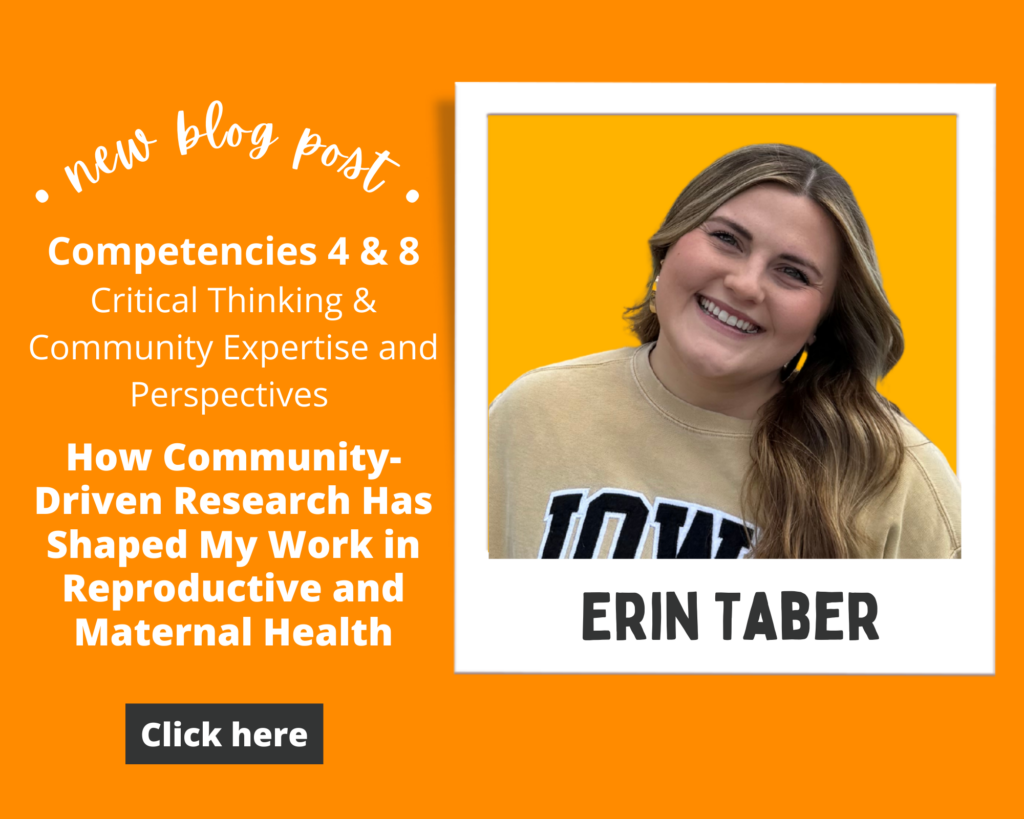
Erin Taber is a maternal and reproductive health student pursuing her PhD in Epidemiology at the University of Iowa’s College of Public Health, and is affiliated with Iowa’s MCH Catalyst Program, where she was a 2025 MCH Scholar and the Co-President of the MCH Student Interest Group. Before beginning her PhD, she graduated with her BA and MPH from Iowa. She works as an Evaluation Researcher at the University of Wisconsin-Madison, evaluating public health programs across Wisconsin. Erin is passionate about health equity, social justice, community-driven research, and reproductive justice. When she’s not studying or working, she can be found doing yoga/pilates, reading or traveling with her husband
Erin is March’s featured author of MCH Leads. In her blog entry, Erin applies MCH Competency 4 (Critical Thinking) and Competency 8 (Community Expertise and Perspectives) to her time as a research assistant. “I aim to center the community expertise of those who have lived experience in everything I do. I also think critically about how my own assumptions and beliefs influence the research and conclusions I come to.”
Learn more about Erin’s contributions here!





